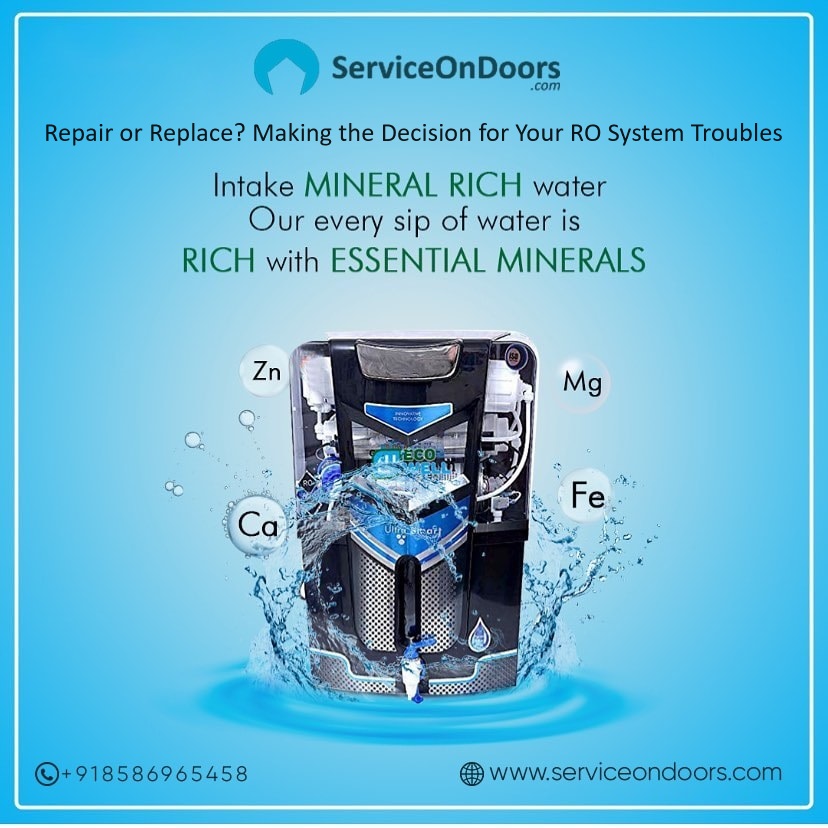Introduction
The Reverse Osmosis (RO) system has become an essential appliance in many households, providing clean and purified drinking water. However, like any other mechanical device, RO systems are prone to issues over time. When faced with problems, homeowners are often presented with a crucial decision: should they opt for repairs or go ahead and replace the system altogether?
Understanding the Problem
Before jumping to a decision, it's important to accurately diagnose the problem your RO system is facing. Some issues might be minor and easily fixable, while others could signal a more significant underlying problem. Common problems include reduced water flow, unusual taste or odor, leakage, and compromised filtration.
Factors to Consider
When deciding whether to repair or replace your RO system, several factors come into play: Age of the System: Consider the age of your RO system. If it's relatively new and still under warranty, repairs might be the best option. On the other hand, if the system is quite old and has been experiencing recurring issues, replacement could be more cost-effective in the long run.
Cost of Repairs vs. Replacement:
Evaluate the cost of repairs compared to the cost of a new RO system. Generally, if repairs cost more than half the price of a new system, it might be wiser to invest in a replacement.
Frequency of Issues:
If your RO system is constantly breaking down or requiring repairs, it might be a sign that the system is nearing the end of its lifespan. In such cases, replacement could save you from the hassle and frequent expenses of repairs.
Technological Advancements:
Consider whether newer RO systems on the market offer better features, improved efficiency, or enhanced water purification. If advancements have been made since you purchased your current system, a replacement could offer better long-term benefits.
Water Quality Needs:
Assess your water quality needs. If your household's water demands have changed or if you now require additional features, a replacement might be the better choice to meet your current requirements.
Environmental Impact:
Think about the environmental impact of replacing your RO system. If the old system can be repaired and continue functioning well, it could be a more environmentally responsible choice compared to disposing of the entire system.
Consulting Professionals
When facing issues with your RO system, consulting professionals can provide valuable insights. A professional technician can assess the extent of the problem and provide you with an accurate estimate for repairs. They can also offer advice on whether the issues are isolated incidents or indicative of larger, systemic problems.
Conclusion
The decision to repair or replace your RO system depends on a variety of factors, including the age of the system, the cost of repairs versus replacement, the frequency of issues, technological advancements, water quality needs, and the environmental impact. Before making a final decision, take the time to consult with professionals, assess your current and future needs, and weigh the costs and benefits of each option. By carefully considering these factors, you can make an informed choice that ensures clean and purified water for your household while managing costs effectively.
